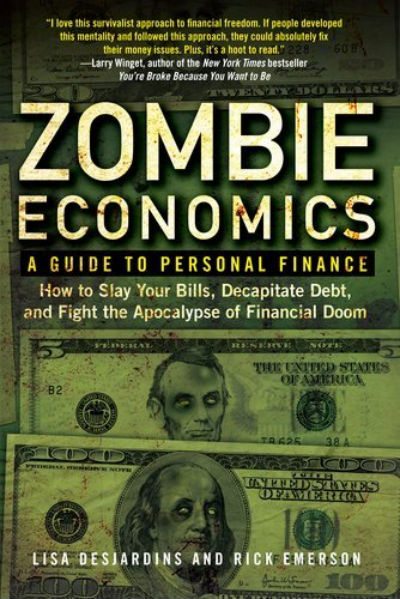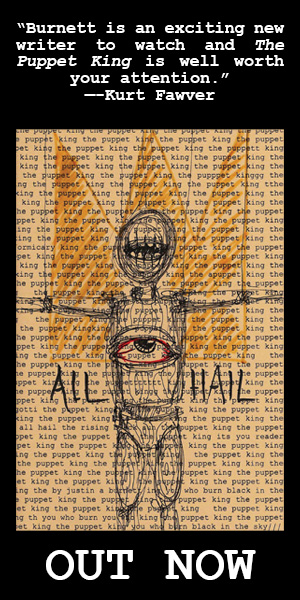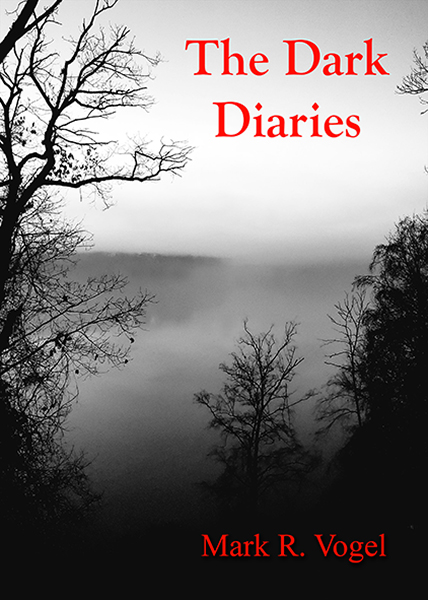Interview: Rick and Lisa of Zombie Economics
Lisa Desjardins and Rick Emerson are the authors of Zombie Economics which we’ve previously reviewed. (Zombie Economics Review.) A great couple of people answer Chip’s question on their novel. Photo credit: copyright VanishedTwin.com.
Chip: Where did you get the idea to tie in personal financial trouble with the zombie apocalypse?
Rick and Lisa: Most money books seem to be written for people who are already rich. I wanted to create a financial guide for people who actually need one…people who are in the trenches, and who are worried about actual financial survival, right now, today.
Zombies are the perfect teaching device because they’re a gradual, creeping kind of menace. You can outrun a single zombie…or two…or maybe three. But little by little, those individual zombies will surround you, and then you’re penned in, unable to flee because there’s no clear path. It’s the same with money: most people don’t go fifty grand in debt overnight. It’s no one bill…no single debt. Instead, it’s the slow, steady accumulation of bills, and setbacks, and collections, until, one day, you find yourself trapped.
And, because it’s no single debt (or zombie), you don’t even know where to start shooting; you have no idea where to begin. Zombie Economics helps you make those decisions.
Chip Fehd: What’s the first and easiest step someone can take to start getting their affairs back on track.
Rick and Lisa: Chapter One is called “The Zombie on the Back Porch”, and it describes a situation in which you hear what sounds like a zombie outside your door; you hear the scraping, the scratching, the thumping. It could be a single zombie…or it could be fifty zombies. Or it could be the wind. Or your imagination. But you’ll never know if you don’t check.
You have to know what you’re up against, and for a lot of people, the “zombie on the porch†is a big stack of bills that keeps piling up on the kitchen counter, or gets shoved into a desk drawer. You need to know the danger you’re facing, and that means sitting down, pulling out that stack of envelopes, and going through them. There might be bad news in that stack–but it’s going to be a lot worse if you wait three months to find out.
A zombie on the porch? That’s bad. But those zombies moan and wail, and that attracts other zombies, and the next thing you know, you have a mile-long chain of zombies outside your house. Your bills do the same thing: they bring collection agents, and late fees, and overdue penalties, and it will get worse and worse until you stop it. You’ve got to open the door –or open that drawer– and face what’s there, before it’s too late.
Chip Fehd: You look outside, and you see the streets filled with the shambling corpses of the living dead…what do you do?
Rick and Lisa: Chapter Two in Zombie Economics is called “Find all the Weapons; Block all the Windowsâ€. We tell people that any opening –any weak spot– is potentially lethal, and so you need to make sure that windows are covered and doors are reinforced. Just as important, you need to inventory what you’ve got: hammers, nails, crowbar, hatchet.
The financial equivalent is understanding exactly how much you make and how much you spend. This is tricker than it seems; most people just think of their hourly wage or yearly salary when calculating their income, but in reality, you take home only a portion of that. The same goes for spending–there are hundreds of small, forgotten expenses that can weaken your financial house: recurring subscriptions, unused gym memberships, ATM service fees, and myriad others. Together, they form a collection of broken windows and rusted hinges, and they put you in tremendous danger.
Chip Fehd: What’s your favorite zombie movie?
Rick and Lisa: Night of the Living Dead has to be given its due as a classic, though it’s interesting to watch it now, because so much of the accepted zombie canon/lore just doesn’t exist in that film. In recent years, I’d say [Rec] is one of the best in terms of execution. I’m also a fan of 28 Days Later, at least until they arrive at the fortified compound, which is when it sort of goes off the rails for me. The most disturbing zombie film I’ve seen in quite a while is Deadgirl, which was off-the-charts unsettling and definitely not for the squeamish.
Chip Fehd: In the chapter “Surviving the Graveyard”, you talk about making the most of unemployment. What advice can you give to readers who may not be eligible for unemployment?
Rick and Lisa: First, take a moment to acknowledge the situation–to wallow, and curse, and be pissed off at your terrible luck. Then, start making decisions, because staying in wallow mode will only get you dead.
Begin by cutting your expenses. Eliminate every recurring cost or bill, unless it’s for an Absolute Necessity (shelter, food, or mandatory payments such as insurance.) Once you’ve cut expenses, check again and cut again. You will nearly always find an additional, ongoing money-leak…or several.
You must also determine your actual, monthly cost of living–your Absolute Necessities. How much money, in real terms, does it take for you to survive every single month? Knowing that figure immediately puts you in a better position, because you have a specific target to hit.
When you’ve cut expenses and determined the cost of your Absolute Necessities, you’ll find that panic gives way to determination; you start looking for ways to close the gap. We discuss this in greater detail in Zombie Economics, along with unconventional –but crucial– advice for coping with the social and emotional turmoil caused by unemployment.
Chip Fehd: Financial freedom is something everyone should strive for. What role, if any should the American educational system play to give young people the tools they need?
Rick and Lisa:The American school system has, for much of its history, been woefully inept at educating students on the subject of financial stability; this failing impacts not only the students themselves, but the rest of the nation (and, arguably, the world), as generation after generation find themselves playing catch-up, trying to get a handle on their finances.
If we accept the proposition (and we do) that schools should teach a combination of practical skills and procedural skills (“learning how to learn†and learning how to teach oneself), then financial education must become a higher priority. To neglect this overwhelmingly-important aspect of American/modern life is to preemptively hamstring our students, ourselves, and our collective future.
Chip Fehd: How did you two partner up on this project?
Rick and Lisa: Lisa was, for many years, a frequent guest on my radio show. She covers politics and the economy for CNN, and is also a huge pop-culture nerd, so our discussions would frequently spiral into long, bizarre conversations about Superman’s eligibility to run for president or what kind of government the Smurfs had. In addition to all the above, she’s got a degree in Economics and is one of the smartest people I know, so when the idea presented itself, she was a natural collaborator.
Chip Fehd: There are arguments on both sides regarding the current American tax structure. If the current tax code were to be scrapped, what kind of system would you prefer, and what kind of structure would be the most beneficial to the normal taxpayer?
Rick and Lisa: This is what people need: good, clear information about their true financial situation. And the current tax code goes the other direction – it makes things more hazy. We’re not putting a flag in the ground for one specific plan (flat tax, for example) or another (perhaps lower rates with fewer deductions). But we most certainly feel that Washington has got to clean-up the tax code. Make it easier for people to see, at the end of the day, not the end of the year, how much money is truly in their pocket.
Chip Fehd: Is zombie economics reversible? Can someone be brought back from the brink of catastrophe?
Rick and Lisa: Our position on the zombie economy (the external situation itself) is this: there is no cure. The spread can be slowed or disrupted, and can sometimes be contained, but the right (or wrong) series of events can set it off again, whether regionally, globally, or in your own life.
As for individuals? First, it’s important to realize that just because you’re in danger, you’re not necessarily a zombie. A financial zombie is someone who doesn’t realize their self-destructive financial behavior…or doesn’t care enough to change it. If you want to protect yourself, and if you’re willing to do what’s necessary, then you’ve got a chance.
We view true financial zombies just as we would the staggering, brain-devouring kind: they might be curable, but not by us. Somewhere, somebody might be working on the magic remedy, but in the meantime, we’re dealing with a relentless, contagious scourge, and our job –our sole priority– is to survive.
Available at Amazon






